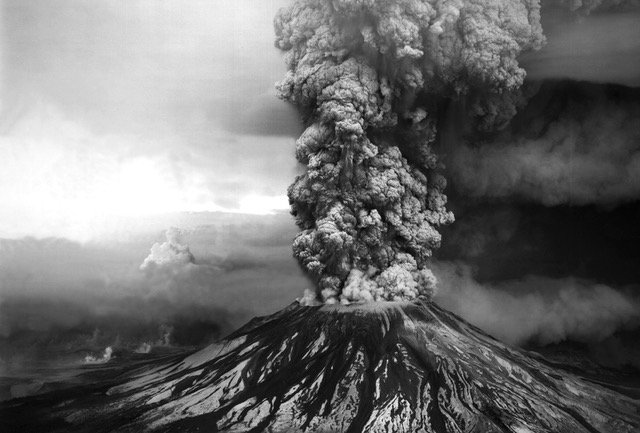
The 1980 eruption of Mount St. Helens is well-documented in the United States, but there is little data on the aftermath of the eruption in Canada-something UAlberta researchers are looking to change with responses from the public. Image credit: United States Geological Survey
Do you remember the eruption of Mount St Helens in May 1980? If so, researchers at the University of Alberta want to hear from you.
Like the scene from a Hollywood blockbuster, the dramatic and deadly eruption of Mount St. Helens in 1980 in Washington State left a lasting impression on a generation. Nearly 40 years later, a new study on the experiences of Canadians during the Mount St. Helens eruption is underway in the Department of Earth and Atmospheric Sciences aiming to collect data from individuals in affected areas when the eruption took place. The study is the first comprehensive attempt to capture human experiences of this event in Canada and is focused on better understanding volcanic activity to improve planning for future disaster preparedness.
"We'd like to understand what it was like for people when the eruption happened," explained Britta Jensen, assistant professor and co-lead on the study. "What did you experience? Did you see ash fall? Where were you, and what were you doing when the eruption happened?" Jensen is leading the survey in collaboration with Tara McGee, professor and human geographer, with the support of undergraduate student Nathan Polard-Yopek.
The Mount St. Helens event was a major volcanic eruption that affected heavily populated areas in North America. The eruption resulted in 56 deaths and approximately $3 billion in infrastructure damage. And while the event is well-documented in the United States, little is known about the aftermath of the eruption north of the border in Canada.
"We want to use Mount St. Helens as a natural laboratory to examine historical ash deposits, which will allow us to better understand other, older eruptions in other areas," said Jensen. "The ash fall from Mount St. Helens is mapped very well in the United States, but we have this big blank spot in Canada. That's where this project comes in. We need to be able to extend that line into Canada."
Jensen and McGee are asking anyone who recalls the eruption to share their experience and any photographs or images with them in a confidential survey. Access the survey here.